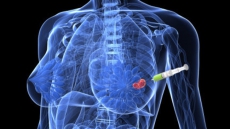Researchers have uncovered a way the malaria parasite becomes resistant to a key clinical trial drug.
The parasite that causes malaria makes a class of molecules called isoprenoids.
These play multiple roles in keeping organisms healthy, whether plants, animals or bacteria.
In malaria, the investigational drug fosmidomycin blocks isoprenoid synthesis, killing the parasite. But over time, the drug often becomes less effective.
"In trials testing fosmidomycin, the malaria parasite returned in more than half the children by the end of the study," said Audrey R. Odom, an assistant professor of pediatrics at Washington University's school of medicine in St. Louis.
"We wanted to know how the parasite is getting around the drug. How can it manage to live even though the drug is suppressing these compounds that are necessary for life?" Odom added.
Fosmidomycin, an antibiotic, is being evaluated against malaria in phase 3 clinical trials in combination with other anti-malarial drugs.
According to Odom, isoprenoid synthesis is an attractive drug target not just for malaria but for tuberculosis and other bacterial infections.
Inhibiting isoprenoid manufacturing in malaria, bacteria or tuberculosis would leave the human pathways safely alone.
In people, perhaps the most well known isoprenoid is cholesterol that is effectively controlled with statin drugs.
The study appeared in the journal Nature Communications.





